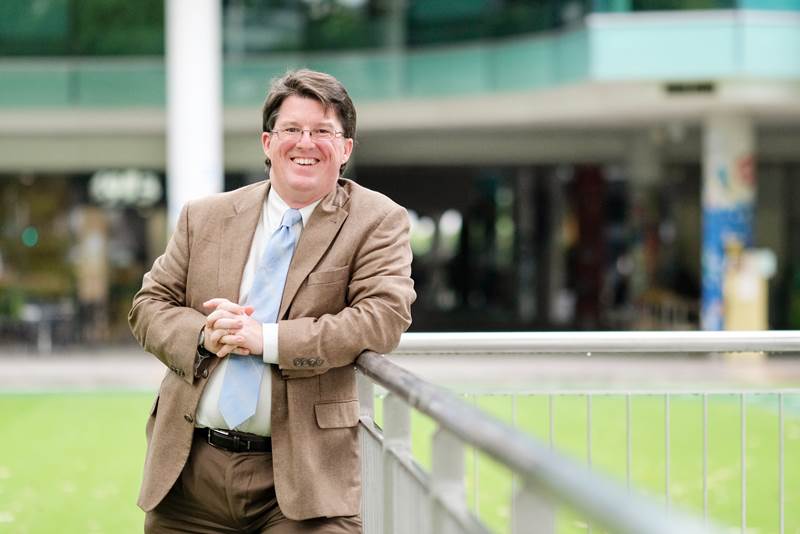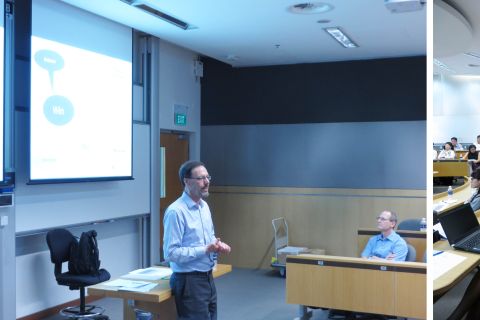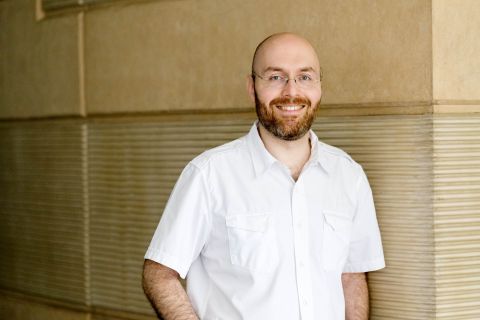
Back to Research@SMU Issue 44
By Sim Shuzhen
SMU Office of Research & Tech Transfer – Visitors to Singapore often marvel at its gleaming skyscrapers, bustling malls and streets, and modern public housing estates. On the surface, it might seem reasonable to assume that poverty does not exist among the well-heeled, well-educated population of the wealthy city-state, long upheld as a miracle of economic development.
But this notion could not be further from the truth. Poverty and other unmet social needs are in fact very real problems for many Singaporeans, yet remain poorly understood, says Associate Professor John Donaldson of the Singapore Management University (SMU) School of Social Sciences.
“Singapore’s economy developed rapidly, and the ‘Third World’ form of poverty has disappeared. Yet, many people fell into a type of ‘First World’ poverty,” he says.
Professor Donaldson, who also studies rural poverty in China, has a keen interest in characterising and measuring poverty in Singapore, and in understanding its root causes.
No one yardstick for poverty
Living conditions among Singapore’s poorest may not be as dire as in other countries, but according to economists’ estimates, a good 10-14 percent of Singaporeans still face severe financial problems and have difficulties meeting basic needs. Hunger, for example, remains a real and present issue for many, says Professor Donaldson.
In addition, many others contend with a variety of unmet social needs. This broader definition of poverty includes elderly people who are socially isolated, people with physical disabilities who face underemployment, and caregivers who struggle to balance work and family commitments.
“Compare this situation to many people’s perception. It was not too long ago that prominent people suggested that Singapore had no poverty of any kind,” says Professor Donaldson.
Fortunately, such attitudes are changing. “We are seeing increased, serious engagement from Singapore’s civil society as well as the public sector,” he observes. “As academics, we felt that it is necessary to contribute to this discussion by taking a careful look at the problem and its nuances.”
In their paper in Social Space titled ‘Measuring Poverty in Singapore: Frameworks for Consideration’, Professor Donaldson and collaborators from SMU’s Lien Centre for Social Innovation (LCSI) studied various methods of measuring poverty, and evaluated their relevance to Singapore.
Because poverty is so diverse, methods to measure it should be chosen based on the issue at hand, says Professor Donaldson.
“We noted that each way of measuring poverty, both quantitative and qualitative, had strengths and weaknesses,” he explains. “Our job as academics is not necessarily to advocate one way or another, but to unpack distinctions between them. I think it might be best to see both approaches as complementary, and use them together as a toolkit rather than choose among them like entrées on a menu.”
Keeping the elderly socially integrated
Instead of studying ‘the poor’ as a homogenous group, Professor Donaldson is a proponent of examining vulnerable communities independently. “There is no magic formula for attacking poverty,” he says.
For example, Professor Donaldson and LCSI researchers carried out a study to learn more about the issues faced by the elderly residents of a low-income neighbourhood in Singapore.
Rather than doing this through surveys and statistics, the researchers instead conducted interviews with the residents. “Intensive interviews allow us to better understand the underlying causes of various kinds of unmet needs,” explains Professor Donaldson.
A major finding from the study was that many elderly people were socially isolated, regardless of whether or not they faced financial problems. In many cases, this affected their mental health.
But the relationship between social interactions and mental well-being was not linear. “There was a lot of difference between no interaction and a medium amount of interaction, but little difference between a medium amount and a lot,” he explains.
Importantly, the researchers found that the quality of an elderly person’s relationship with their children, as well as the feeling that they had someone to count on in times of need, were the most effective counters to social isolation. Unexpectedly, factors such as living alone or relationships with neighbours were less important to mental well-being. Based on these insights, LCSI has worked with voluntary welfare organisations (VWOs) to further enhance the effective programmes in place, says Professor Donaldson.
The researchers published their findings in a SMU Change Lab report titled ‘Elderly Population in Singapore: Understanding Social, Physical and Financial Needs’. The Change Lab has also produced similar reports based on intensive interviews with low-income single-parents and people with physical disabilities.
Changing the way we think about the poor
Unmet social needs are diverse and unique to each vulnerable community, says Professor Donaldson. Yet, he suggests a possible underlying problem: the thinking, at least in some quarters, that the poor have a negative mindset that keeps them in poverty.
“What exactly constitutes that mindset is often left vague, but it’s implied that the poor are lazy, not hardworking, don’t have dreams and aspirations or don’t value education,” says Professor Donaldson.
The researchers’ interviews with the poor, however, have turned up very little evidence of such a mindset.
“We sometimes found what might be better described as hopelessness, despair or resignation. This might lead to behaviours that appear to be based on a negative mindset. But the core problem is not the mindset; instead it is the situation that produces a very real feeling of powerlessness,” he says.
In his opinion, the assumption that the poor have a negative mindset has real consequences – it prevents society from addressing the underlying, concrete problems that cause this sense of disempowerment.
In addition to his work on low-income elderly, single parents and people with disabilities, Professor Donaldson, together with his collaborators, also studies a range of other social issues in Singapore. These include the problem of hunger in vulnerable communities, issues faced by students in the normal technical academic stream, and the societal impact of changes in the government’s approach to public assistance.
“I feel inspired by the Singapore Ministry of Social and Family Development’s mission statement that calls all of us to ‘nurture a resilient and caring society that can overcome challenges together,’” he says. “Since Singapore is my home, I have a special interest in contributing here.”
Back to Research@SMU Issue 44
See More News
Want to see more of SMU Research?
Sign up for Research@SMU e-newslettter to know more about our research and research-related events!
If you would like to remove yourself from all our mailing list, please visit https://eservices.smu.edu.sg/internet/DNC/Default.aspx

